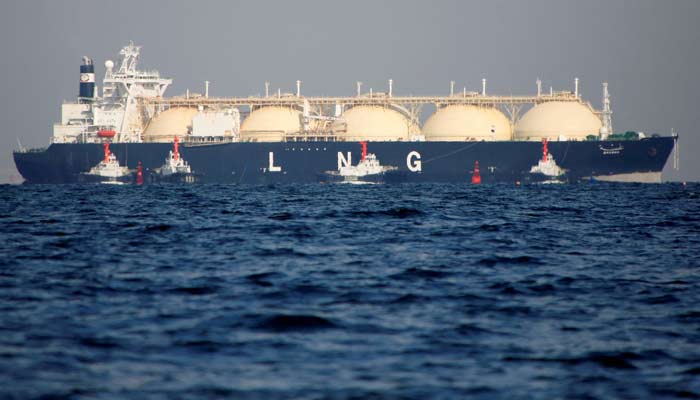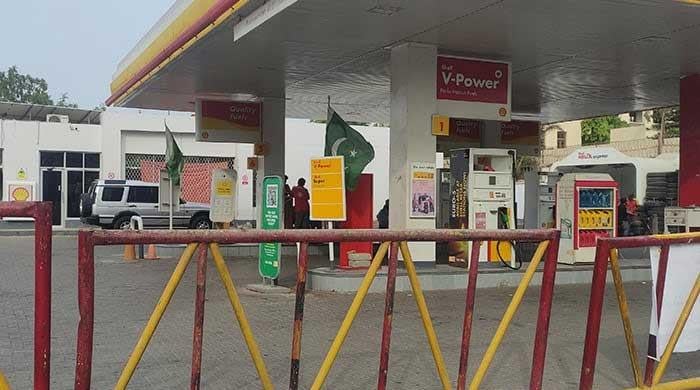Pakistan unlikely to buy spot LNG in summer despite extreme heat
Country suffered widespread power outages due to its inability to buy expensive LNG after prices surged
June 12, 2024

Pakistan is unlikely to buy liquefied natural gas (LNG) cargoes on the spot market until at least the beginning of winter in November due to oversupply and high prices, Petroleum Minister Musadik Malik told Reuters.
Extreme temperatures across Asia have pushed countries to seek more cargoes of LNG to address higher power demand, driving spot prices to their highest since mid-December. Asia spot LNG last traded at $12.00 per million British thermal units (mmBtu) on Friday.
However, LNG demand in the second largest south Asian LNG buyer was "subordinate to supplies," the minister told Reuters, despite heatwaves baking the country of 300 million people with temperatures surging to a near-record.
"The question of getting more LNG when we can't sell the amount of LNG that we already are obtaining from our long-term contracts, it does not apply," Malik told Reuters in an interview.
Annual power use in Pakistan, which gets over a third of its electricity from natural gas, is expected to fall consecutively for the first time in 16 years, due to higher tariffs curbing household consumption.
Poor and middle class households are still feeling the impact of the International Monetary Fund's (IMF) bailout of Pakistan last year, which contributed to higher retail prices. A series of power tariff hikes over 12 months was a key part of the IMF programme which ended in April.
Industrial demand has also remained tepid due to a cloudy economic outlook.
Pakistan, which last bought a spot LNG cargo in late 2023, cancelled its spot LNG tender for delivery in January. Malik attributed the cancellation to oversupply, adding that there were "not a lot of customers" at current LNG spot prices.
Malik said Pakistan was keen to adopt more renewable energy to cut its import bill and exposure to geopolitical shocks. The country suffered widespread power outages due to its inability to buy expensive LNG after prices surged due to Russia's invasion of Ukraine.
"Any country that is importing $15-18 billion of fuel, how can it be sustainable when the total exports are south of $30 billion? So we have to move away from the imported elements such as LNG," he said.
Pakistan is also trying to access less expensive natural gas by building a pipeline with Iran, but was wary of sanctions, he said.
"We basically are trying to work out the solution whereby we can have access to less expensive gas, but in a manner which does not invoke any sanctions on Pakistan. It all depends on legal interpretations," he said.
"From our perspective, we don't want to get into litigation and we don't want to get sanctioned."











